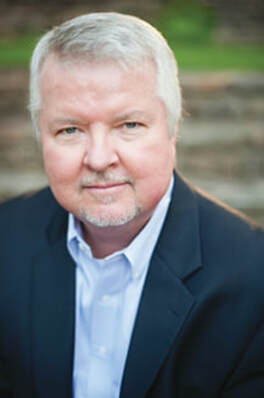|
Jeffery N. Lucas started his career as a land surveyor and is a licensed surveyor in Alabama, Florida, Georgia, Mississippi and Tennessee. Lucas is a recognized expert in boundary surveying, land title surveys and property law. He obtained his first land surveying license in Florida (1984) where he spent the first part of his surveying career. After relocating to Alabama, he has practiced across five southeastern states.
Lucas attended and graduated from law school later in his career. He is also a licensed attorney and member of the Alabama State Bar (2003). His practice is focused on land boundary issues and real property law, including adverse possession, boundary disputes, professional liability, real property, and zoning and land use issues. He has been an expert witness and consultant in many cases involving land surveying and boundary disputes. As a result of his experience and background, Lucas is also a continuing education seminar leader on surveying and legal topics. He has developed a library of over 40 titles and conducts continuing education seminars for land surveyors, engineers and attorneys all across the country. In addition he has authored over 100 articles on surveying, boundary, and legal issues that have been published in state and national professional journals. He has a regular legal column in P.O.B. magazine and has been writing for the magazine since 2004. Lucas has also authored three books on land surveying and boundary law: “Alabama Boundary Law” (2009), “The Pincushion Effect, The Multiple Monument Dilemma in American Land Surveying” (2011), and “Illinois Boundary Law” (2012). Lucas is currently the Alabama Survey Division Manager for ESP Associates AL, Inc. |
PinCushion Effect
Thursday, January 11, 2024, 8:00 a.m. - 5:30 p.m.
The “pincushion” corner is the name that has commonly been assigned to the phenomenon of multiple monuments that have been set by surveyors in the vicinity of a single land boundary or property corner. The pincushion corner is the bane of the land surveying profession because it represents the physical manifestation of the land surveying profession’s collective confusion over their duties and responsibilities toward property boundaries. Within the context of retracement surveying and the land surveyor’s concomitant duties and responsibilities toward boundaries, there is no reason for multiple monuments to exist when only one corner is contemplated under the law. This seminar explores the phenomena of the pincushion corner and the dilemma it creates for the land surveying profession. The surprising causes of the pincushion corner will be discussed and ways to avoid starting a new pincushion or adding to an existing one will be explored. Presentation is based on the book, “The Pincushion Effect, The Multiple Monument Dilemma in American Land Surveying,” by Jeffery N. Lucas. Power Point presentation.
OBJECTIVES: To enhance professional competency and improve practitioner’s knowledge of the law as it relates to the practice of land surveying.
OBJECTIVES: To enhance professional competency and improve practitioner’s knowledge of the law as it relates to the practice of land surveying.
What Went Wrong
Friday, January 12, 2024, 8:00 a.m. - 12:00 p.m.
As I continue “Traversing the Law,” studying and writing about court cases involving boundary disputes and land surveyors, I have found everything from the ridiculous to the sublime. In some cases, I had to shake my head in disbelief over what I was reading, leaving me with just one question: What went wrong? This seminar will investigate the answer to this question by a detailed study of relevant court decisions involving surveyors and surveys that went terribly wrong. The painful lessons learned by others through the school of hard knocks can be painlessly explored and appreciated without the accompanying liability and damages that attach to boundary disputes and negligence actions. These cases will be studied and discussed through a Power Point presentation.
OBJECTIVES: To enhance professional competency and improve practitioner’s knowledge of the law as it relates to the practice of land surveying.
OBJECTIVES: To enhance professional competency and improve practitioner’s knowledge of the law as it relates to the practice of land surveying.


